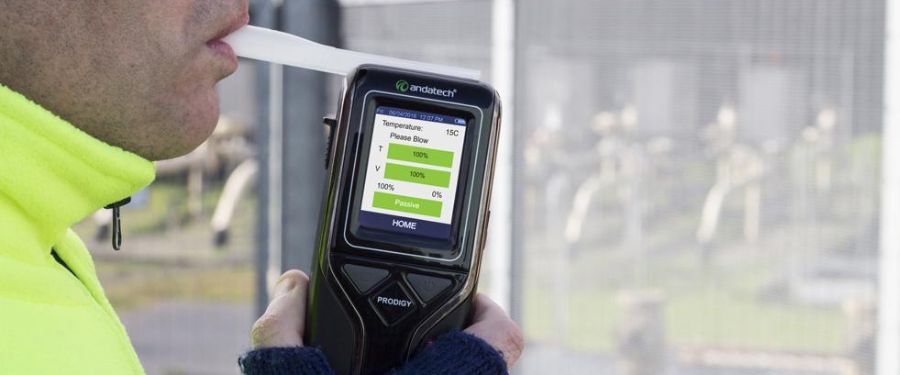Whether it’s for personal peace of mind or workplace safety, a breathalyser can be a lifesaving investment. But with so many options on the market, choosing the right one isn’t always easy. Not all breathalysers are built to the same standard, and the wrong choice could give you inaccurate results when you need them most.
To make the decision easier, here are five key questions to ask before buying a breathalyser — and how Andatech can help you find the one that’s right for you.
1. Is it certified to Australian Standards (AS3547)?
Certification matters. If a breathalyser isn’t AS3547 certified, there’s no guarantee that it will give reliable readings. For personal safety and workplace compliance, accuracy is everything — and uncertified devices can leave you exposed to risk.
Personal breathalysers from Andatech are tested to ensure accuracy with most units certified to Australian Standards while all workplace units are guaranteed certification.
2. What type of sensor does it use?
The sensor is the heart of any breathalyser. The two main types are semiconductor and fuel-cell sensors.
- Semiconductor sensors are affordable and suitable for light, occasional use.
- Fuel-cell sensors are more accurate, durable, and trusted by law enforcement and workplaces.
If you’re unsure which is right for you, check out our detailed comparison:
Semiconductor vs fuel cell breathalysers.
3. How often does it need calibration?
Like any precision instrument, breathalysers require regular calibration to stay accurate. Most devices need calibration every 6–12 months, depending on usage.
Andatech offers calibration services straight from their NATA accredited calibration service centre in Melbourne.
Andatech calibration services also come with built-in automated reminders so you never have to worry about forgetting to calibrate your breathalyser.
4. Do you need personal, workplace, or hospitality use?
Not all breathalysers are designed for the same purpose. Knowing who will be using it — and how often — is key.
- Personal use → Compact, portable, easy-to-use devices (see The beginner’s guide to personal breathalysers). Popular picks include the AlcoSense Verity and Andatech GT.
- Workplace use → High-volume, professional-grade breathalysers designed for compliance (see The beginner’s guide to workplace breathalysers). Options include the Prodigy range, Surety, and connected solutions via Andalink.
- Hospitality and venues → Wall-mounted, self-service units like the Soberpoint 3 and Soberlive help venues reduce risks for patrons and staff.
See how this works in practice in our Crown Casino case study.
5. What features matter most to you?
Once you’ve narrowed down your options, it comes down to features. Think about what will make your device more practical and useful for your situation.
- Smartphone connectivity (Bluetooth apps).
- Data logging and printing (useful for workplaces).
- Andalink connectivity for real-time workplace monitoring.
- Eco-friendly mouthpiece options, such as paper straws with the Andatech GT.

The right features depend on your lifestyle or workplace needs — but they all add convenience and confidence.
Conclusion
Choosing the right breathalyser isn’t just about the price tag. It’s about accuracy, certification, sensor type, and matching the device to your needs. By asking these five questions, you’ll be well on your way to making a safe, informed choice.
At Andatech, we’re proud to supply a wide range of AS3547-certified breathalysers for Australians — whether you’re checking yourself before driving or managing workplace safety.
Explore the full range on our Breathalyser collection page or reach out to our team for free expert advice below!





